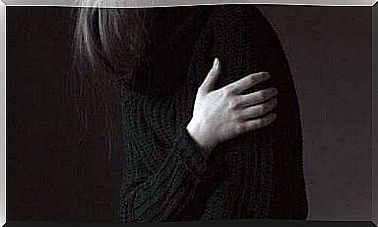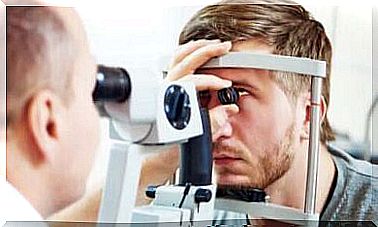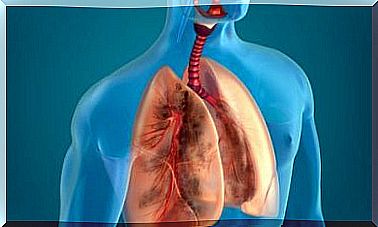What Are Nocturnal Eating Episodes?

Have you ever overeaten late at night? In that case, you may have some experience with night eating episodes ( night eating syndrome in English).
People with this disorder often wake up in the middle of the night to eat. They often eat at this time because they wake up with an uncontrollable desire to eat.
However, this only happens at night. During the day, they may either have a lack of appetite or simply not eat because they are on a strict diet.
However, they are not alone. It is actually quite common to eat at night. About 1 in 100 people suffer from nocturnal eating episodes.
What are nocturnal eating episodes?
Overeating is a serious problem and you can identify it with two basic characteristics:
- The person eats a large amount of food, much more than one would normally eat under similar circumstances.
- A feeling of lack of control. The person is unable to stop eating and lacks control over everything that has to do with overeating.
Characteristics of nocturnal eating episodes

Who has not heard of eating disorders such as anorexia and bulimia?
Believe it or not, nocturnal eating episodes are actually much more common.
People with this disorder often have trouble controlling their emotions and often experience panic attacks in the form of:
- Anxiety
- Depression
- Lack of sleep
- Low self-esteem
According to some psychologists, people who experience nocturnal eating episodes usually have weight problems. This is probably because they eat most of the food during the hours they should have slept.
Furthermore, 20% of overweight people admit that they feel much better and more satisfied when they eat at night. Similarly, more than 75% of them shop according to this desire.
However, although this condition is much more common in overweight and obese people , it can affect everyone.
Symptoms of nocturnal episodes
The symptoms and patterns of this condition are obvious and are often repeated among those who suffer from this eating disorder. As we mentioned above, people with nocturnal eating episodes barely eat during the day or nothing at all. They simply lack appetite throughout the day.
Also, these people are more energetic in the morning even though the energy disappears throughout the day. It is also very common to experience sleep disorders.
The foods that are usually consumed are often rich in carbohydrates such as sweets, pastries, bread, rice and pasta as well as a few more.
Tips to avoid as well as treat nocturnal eating episodes

The exact causes behind this syndrome are still under investigation. However, we know that it is not a good idea to address the issue through the topic of obesity. It’s a sensitive topic and the night eater already knows it and feels guilty.
Unlike other eating disorders, this one is not necessarily about weight or self-esteem. That is, these people are not necessarily dissatisfied with their bodies (at least that is not their main concern).
For this reason, the priority is to understand where the anxiety comes from and why they are trying to calm it down with food. The solution therefore usually requires multidisciplinary intervention from professionals in psychology, psychiatry and nutrition.
For this reason, the following advice takes a couple of perspectives into account.
Nutritional perspective
- People who suffer from nocturnal eating episodes should follow an appropriate diet and adapt it to their condition.
- They should exercise for at least 30 minutes every day.
- Rest is fundamental to our overall health, both quantity and quality. They need to learn techniques to help them rest better.
- They should reduce stress by spending time on things they enjoy. A social life and shared activities are fundamental to good health.
Psychological perspective
Cognitive behavioral therapy can help a person suffering from nocturnal eating episodes to understand and gradually change their behavior. It can help them organize their thoughts and deal with the stress and anxiety related to their condition.
Conclusion
Nocturnal episodes are much more common than the better known ailments of anorexia and bulimia.
It is therefore important to establish an interdisciplinary approach to solving the problem by first focusing on treating the anxiety that triggers night eating.
Do not hesitate to seek professional help if you think you are overeating or if your anxiety level is high.









